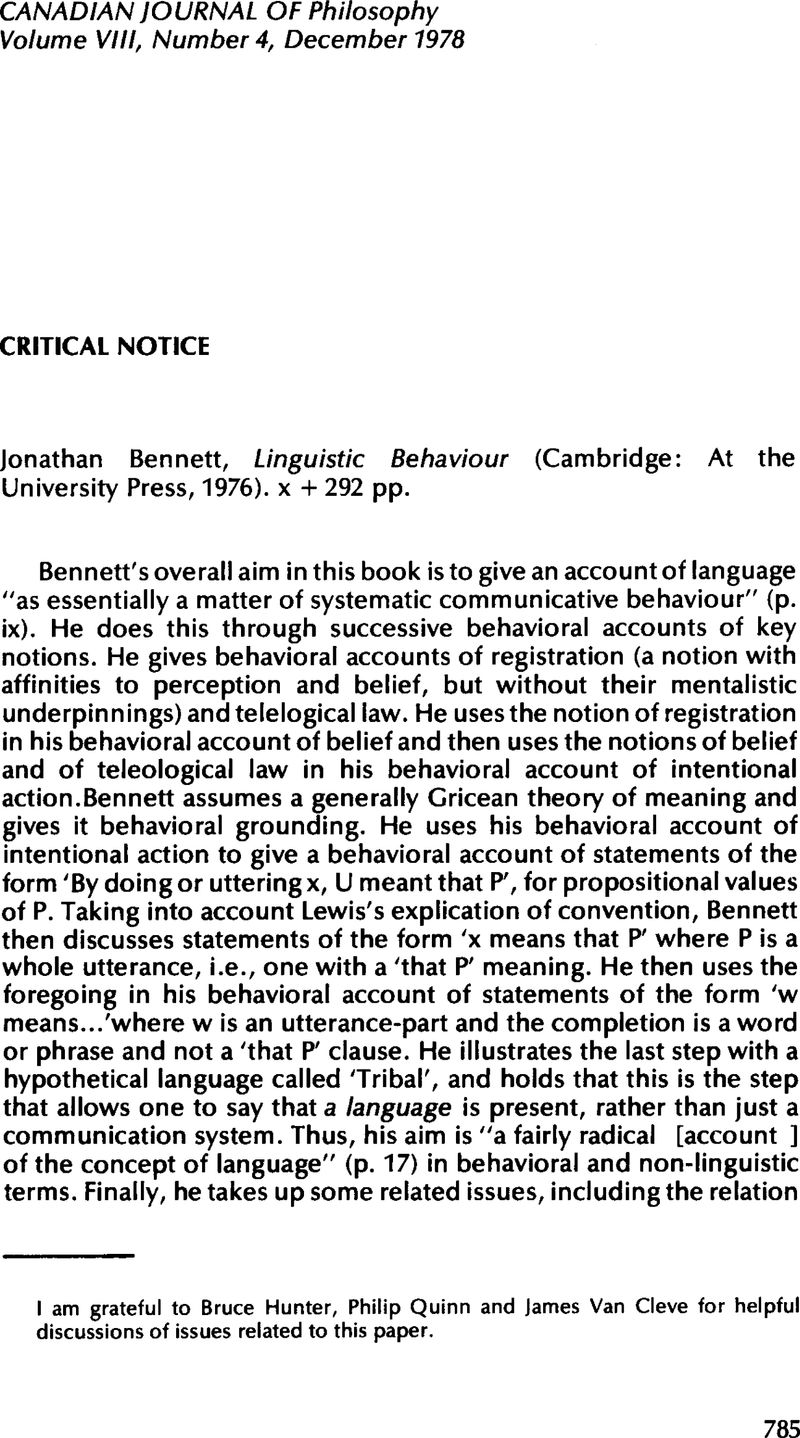No CrossRef data available.
Article contents
Jonathan Bennett Linguistic Behaviour (Cambridge: At the University Press, 1976). x + 292 pp.
Review products
Published online by Cambridge University Press: 01 January 2020
Abstract

- Type
- Critical Notice
- Information
- Copyright
- Copyright © The Authors 1978
References
I am grateful to Bruce Hunter, Philip Quinn and James Van Cleve for helpful discussions of issues related to this paper.
1 The Putnam material Bennett discusses here is “The Mental Life of Some Machines” and “Brains and Behavior” both inPutnam, Hilary Mind, Language and Reality (Cambridge, 1975).CrossRefGoogle Scholar
2 Ibid., p. 420.
3 Bennett does include “educability” in his later explication of belief (sec. 25). But it would be question-begging to cite that in his defense here, since his reason for including that condition is that it helps give behavioral grounding to the notion of belief.
4 Plantinga uses an example of this sort in a different|context|in Plantinga, Alvin The Nature of Necessity (Oxford, 1974), p. 3.Google Scholar
5 Putnam, op. cit., p. 423.
6 See Chisholm, Roderick Theory of Knowledge,2d ed. (Englewood Cliffs, N.J., 1977),Google Scholar chap. 7.
7 His use of this substitution principle is surprising because later he denigrates “the assumption that claims about meanings are directly answerable to what speakers have in mind when they use the expressions in question” (p. 266) and goes on to say of that assumption
This assumption can lead to the rejection of one anaylsis of counterfactuals because when someone says ‘If it hadn't rained, we wouldn't have gone swimming’ he is not thinking about the law-derivability of some propositions from others, and to the rejection of another analysis because the speaker is not thinking about classes of possible worlds. By this standard, it seems, any correct analysis would be rather trivial, but when that consequence was noticed, many philosophers, instead of dropping the standard, announced discovery of something called the ‘paradox of analysis’. This whole way of thinking vanishes, happily, when we move to the language of truth conditions ….(p. 266).
This passage makes it look as though Bennett opposes the substitution principle. I think the substitution principle is correct. For an argument in its favor, see my “Proper Names, Propositional Attitudes and Non-Descriptive Connotations”, forthcoming Philosophical Studies.
8 The Davidson arguments in question are in Donald Davidson's “Mental Events”, in Foster, L. and J. W. Swanson, (eds.) Experience and Theory (Amherst, Mass.) pp. 79–101Google Scholar, and his “The Material Mind” in Suppes, P. et al. eds.) Logic, Methodology and Philosophy of Science IV (Amsterdam 1973), pp. 709-722.Google Scholar


